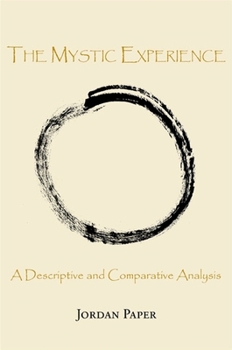The Mystic Experience: A Descriptive and Comparative Analysis
Explores the human experience of mysticism and looks at it within the spiritual traditions around the world.
The mystic, zero, or void experience-the ecstatic disappearance of self along with everything else-is considered by those who have had it to be the most beautiful, blissful, positive, profound, and significant experience of their lives. Offering both a descriptive and a comparative perspective, this book explores the mystic experience across cultures as both a human and cultural event. The book begins and ends with descriptions of the author's own mystical experiences, and looks at self-reported experiences by individuals who do not link their experiences to a religious tradition, to determine characteristics of this universal human experience.
These characteristics are compared to statements of acknowledged mystics in diverse religious traditions. The mystic experience is also situated within other ecstatic religious experiences to distinguish it from similar, but distinct, experiences such as lucid dreams, shamanism, and mediumism. Jordan Paper goes on to look at how the mystic experience has been considered in various fields, such as sociology, psychology, anthropology, biology, and comparative religious studies.






